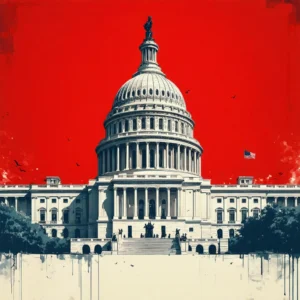
Overview of the New Executive Order
In a move that has sent shockwaves through the legal industry, the Trump administration has released an executive order targeting law firm practices specifically associated with summer associate placements, commonly known as “vac schemes” in reference to their UK counterparts. The order is a direct critique of what the administration deems discriminatory practices in BigLaw, particularly those related to diversity initiatives. The directive specifically names prominent firms, including Perkins Coie and Covington & Burling, and calls for rigorous reviews of their hiring processes and internal promotions. This initiative is positioned as a necessary measure to ensure fairness and equity in government contracting and legal representation, while simultaneously questioning long-standing diversity strategies in the industry.
Key Components of the Executive Order
Scope and Definitions
The executive order clarifies its scope by defining what it terms as “vac schemes.” These are summer vacation programmes that some law firms have historically used to recruit a pool of candidates, sometimes allegedly favoring individuals from what the administration calls “preferred races.” The order stipulates that:
- All government contracts with large law firms must be re-assessed for compliance with non-discrimination statutes.
- Investigations will be carried out into the allocation of senior roles and summer associate positions.
- Security clearances and related government privileges are subject to review and potential revocation if discriminatory practices are uncovered.
The order outlines these initiatives as part of broader efforts to address what it describes as “illegal and immoral” diversity and inclusion practices that have been prominent in the legal sector. Underpinning the directive is the administration’s determination to realign policy with its interpretation of equal opportunity laws.
Implications for the Legal Industry
The business impact of this order is significant. Several implications are anticipated for both the legal firms involved and the broader market:
- Market Reputation and Client Relations: Firms targeted by the order may face reputational risks that could affect relationships with high-profile clients. The potential labeling of firms as practitioners of discriminatory hiring and promotional practices may influence client decisions in government and private sectors.
- Internal Restructuring: Legal firms will likely re-evaluate their recruitment and promotion policies. This might lead to an overhaul of diversity initiatives or a strategic repositioning of these initiatives to ensure strict compliance with federal guidelines.
- Compliance Costs: The administrative requirements of supporting an internal compliance audit and adjusting outreach programmes to align with federal legislation are anticipated to lead to increased operational costs.
- Industry-wide Standard Reassessment: Other law firms may preemptively adjust their policies to avoid similar scrutiny, potentially catalyzing a sector-wide review of diversity and inclusion programs.
Business Challenges and Strategic Responses
Risk Management and Legal Compliance
Firms are now forced to navigate both legal and reputational risks. From a risk management perspective, understanding these challenges is critical:
| Challenge | Description | Strategic Response |
|---|---|---|
| Reputation Management | Negative publicity stemming from allegations of discriminatory practices. | Develop proactive public relations strategies and transparency measures. |
| Policy Overhaul | Outdated practices in summer associate recruitment may need adjustment. | Implement comprehensive reviews and reforms in hiring practices. |
| Government Contract Risks | Current contracts under review may be jeopardized by non-compliance. | Establish dedicated legal teams to audit and ensure compliance with federal guidelines. |
Addressing these challenges requires a multi-faceted approach that involves not only immediate risk management tactics but also long-term strategic planning. Engaging with legal experts and compliance committees will be essential to both interpret the scope of the order and implement necessary reforms.
Future Outlook and Market Trends
This executive order is a significant indicator of how government policies can reshape established industry practices. Several trends can be anticipated:
- Increased Regulatory Oversight: More stringent protocols may be introduced, affecting a range of sectors beyond law firms, especially those that engage with government agencies.
- Evolution of Diversity Strategies: Firms might develop new, progressive diversity initiatives that integrate broader definitions of merit and performance without being flagged as discriminatory.
- Competitive Advantage: Law firms that swiftly adapt by showcasing transparent, merit-based evaluation systems may secure a competitive edge in both public and private markets.
Moreover, realignment efforts might lead to industry collaboration that standardizes best practices. As law firms adapt internally, one can expect enhanced systems of accountability and perhaps even a recalibration of what constitutes effective diversity management in the competitive legal marketplace.
Strategic Recommendations for Law Firms
Immediate Action Steps
In response to the new executive order, law firms should consider taking the following action steps to mitigate risks and prepare for potential government inquiries:
- Conduct Internal Audits: Initiate comprehensive reviews of recruitment, promotion, and client engagement strategies. This will help identify any non-compliant practices.
- Strengthen Compliance Programs: Develop or update compliance protocols to ensure alignment with federal requirements. This includes documenting hiring processes and decision-making criteria.
- Enhance Transparency: Publicly communicate reforms and improvements in internal policies. This proactive strategy can help manage reputation and reassure clients and stakeholders.
These immediate actions can serve as a foundation for broader reforms, ensuring that law firms remain agile amid evolving regulatory conditions.
Long-Term Strategic Planning
Looking to the future, legal establishments must integrate these changes into a broader strategic framework focused on sustainable growth and ethical business practices. Key long-term initiatives include:
- Policy Reformation Initiatives: Establish interdisciplinary committees that involve HR, compliance, legal, and strategic planning units to continuously safeguard against discriminatory practices.
- Investment in Training: Develop training programs focused on compliance, equality, and business ethics. Such initiatives will not only mitigate legal risks but also foster an inclusive company culture that adapts to changing external pressures.
- Enhanced Stakeholder Engagement: Engage with regulators, industry bodies, and civil society organizations to exchange insights on best practices, therefore positioning the firm as a forward-thinking leader in corporate governance.
By embedding these long-term strategies, law firms can better position themselves within a competitive market while contributing to a legal and business ecosystem that values transparency, compliance, and ethical conduct.
In conclusion, the current executive order marks a pivotal moment for the legal industry, urging firms to reexamine internal practices and prepare for intensified governmental scrutiny. As these companies recalibrate their business models to align with the new federal guidelines, the resulting transformation may lead to a more equitable, accountable, and market-responsive legal sector that underscores the importance of strategic adaptability in evolving political landscapes.




